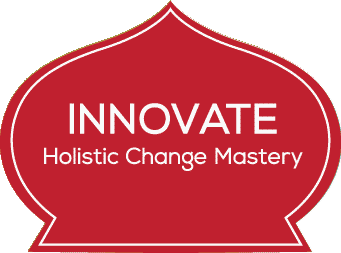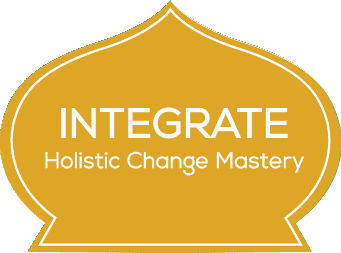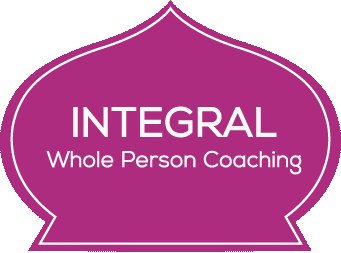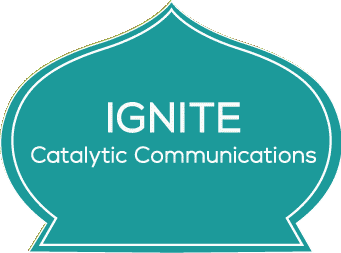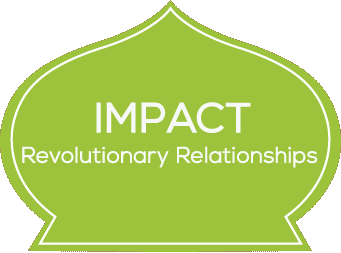
Should you become a Whole Person Executive Coach?
Top-tier executive leaders frequently struggle to realize their full potential, as well as that of their company or division. They are too inundated by the operational demands and stresses of day-to-day business. Executive coaches fill the void by working with these leaders to self-identify their problem areas then develop the executive-level skills that enable them to positively impact the entire organization.
As an executive coach, you focus on developing highly effective, influential leaders who are currently working within the top rank of the company hierarchy, typically C-level. This frequently encompasses:
- Developing leadership and management skills to more effectively motivate and inspire employees
- Transitioning individuals to a higher level of management or new assignment
- Acting as a sounding board
- Improving communication
- Cultivating time management strategies
- Improving work-life balance
- Assisting with succession planning
Executive coaches are also frequently called upon to encompass aspects of life coaching, wellness coaching and often, effective communication. As an executive coach, you are most effective when working holistically with your clients, leveraging their whole being to achieve optimal, sustainable results in all aspects of their life.
Who hires an Executive Coach?
Typically brought in by HR departments, senior managers, and even the coaching clients themselves, executive coaching is reserved for those who are critical to an organization’s success (CEOs, CTOs, CFOs and other top-tier leaders).But recently we are also seeing executive coaching being employed to support new and aspiring leaders as well. Its value is reflected in a range of recent press ranging from Forbes to the Harvard Business Review (HBR).
In an article titled “What can coaches do for you?” the Harvard Business Review found that forty-eight percent of executive coaches are reportedly hired to “develop high potentials or facilitate transition,” followed by twenty-six percent who are engaged to “act as a sounding board.” “Addressing derailing behavior” registered a distant third, with only twelve percent of executive coaches hired for this purpose.
These findings represent a shift in the industry, as well as those seeking coaching. Many executives who now get the most out of your services are those who possess a “fierce desire to learn and grow,” according to the HBR article. (Uh… hello, dream client! Who wouldn’t want to work with someone like that!?)
Within this role, you work alongside directors, vice presidents, managing directors, or other senior leaders of a company or nonprofit organization. You often focus on developing leadership skills and capacity, with highly positive, purpose-driven business results typically being the end goal.
Why you might love becoming an Executive Coach?
This branch of coaching isn’t for everyone. But if you possess strong business and leadership experience and have a passion for the inner workings of high-level corporate life, the answer is a resounding YES! You could get the chance to work side by side with some of the world’s most influential business leaders, helping them shape the companies that in turn shape our world.
In pursuing this branch of coaching, you identify as someone who loves to serve high-profile leaders and decision makers — recently in particular those who are up-and-coming. Like small business coaches, executive coaches often possess additional experience or expertise in a given industry or role within a company that they use in combination with coaching. With this background knowledge and history, you are far more effective at assisting leaders by addressing the needs of that company. Additionally, many people come to us with degrees in leadership development and organization development, wanting to add coaching into their toolkit to shine up their skills and move their résumé to the top of the stack.
In fact, many an executive coach started out in organization development, HR, training and development, or is a former CEO or comparable leader themselves. Above all, they have notable experience in the corporate arena. They can demonstrate a clear methodology for developing others and readily create a unique model that specifically addresses the individual executive and the challenges they face. If that’s you, executive coaching is one of the most effective ways to transition into a consulting-type position or simply boost your profile within your current organization.
An important subcategory that deserves mention here is the executive coach with a focus on nonprofits. Like a standard executive coach, it’s helpful to have background and work experience in the nonprofit arena. But it’s also not uncommon for business professionals to branch out into helping these kinds of organizations. At Coach Training World, we routinely have a broad range of individuals interested in the nonprofit world, or who are already well established within it, seek coach training. So if you’re on the hunt for a tribe that’s passionate about community foundations, company-sponsored foundations and corporate giving programs, cooperative ventures, endowments or private foundations, it’s a fair bet you’ll find more than a few kindred, charity-minded spirits here.
What is the difference between a leadership coach and an executive coach?
Leadership coaching is viewed as a subset of executive coaching. As an executive coach, you focus on an executive’s performance, individually and within relation to their organization. This is often quantified through monetary terms.
Leadership coaching is a little different. It tends to focus on developing someone to become a better leader for others. Leadership coaches work with C-suite professionals and leaders at all levels within the company. They instill the means to earn the respect of their direct reports and teams through authenticity, not just because of their title.
Organizations who follow this mold replace the bygone style of an indifferent, aloof top-level executive with that of a confident, supportive, and compassionate leader – one who builds a network of other leaders through their guidance. A leadership coach supports leaders to become mindful of varying and diverse viewpoints within a work environment. They also offer tools that allow company influencers to lead more effectively through inspirational, impactful communications.
Executive Coach Certification
As an executive coach, you focus on serving the needs of the CEO and C-suite, as well as the entire organization. Individuals who pursue this coaching specialty have a strong background in holistic coaching, like Whole Person Coaching. Most also have C-suite experience either as an executive or as a direct support to one. This unique combination of expertise and skill enables them to provide the tools and process knowledge valued by business executives and organizational leaders.
During your training to become an executive coach, you learn to view organizational challenges through the lens of an executive. You also learn the skills that enable you to generate fresh perspectives, plan strategic actions, and champion executives to bring their best into the organization.
Executive coach training programs give you the ability to:
- Develop leadership and management skills in high potentials and other C-level individuals
- Transition people to a higher level of management or new assignment
- Act as a sounding board
- Assist executives with decision-making
- Generate curiosity and deepen self-awareness in leaders
- Invite a holistic perspective and champion sustainable results
- Cultivate time management strategies
- Improve work-life balance
- Assist with succession planning
- Work through challenging organizational changes
- Build trust, rapport and respect as a valued behind-the-scenes expert
Organizational executives appreciate that you understand their needs from personal experience. They also typically welcome your perspective into conversations to solve challenges… provided you remain true to your client’s stated goals.
Executives are frequently under tremendous stress. Their role and influence affect the company and its employees. As an executive coach you are in the honorable position to truly initiate change at a system level.
Leadership Coach Certification
Leadership coaching is often viewed as a branch of executive coaching. As a coach in this field, you begin your coach training with a focus on the whole individual. This gives you the tools to shape your client’s leadership and management style toward more positive, effective forms of communication, creativity, decision making, and teamwork.
You gain the capacity to champion newer and existing leaders to step into their role and excel. Certification within this coaching specialty allows you to maximize abilities within the following disciplines:
- Improve performance by supplementing a leader’s soft skills, allowing them to work more effectively with different personalities and even difficult employees
- Empower leaders to overcome obstacles by focusing on their strengths and weaknesses
- Develop holistic insight through meaningful questions by probing deeper levels of being
- Promote flexibility in thinking through the consideration of multiple and culturally diverse perspectives
- Refine a leader’s communication style to ensure they successfully communicate their intended message
Given the increased focus on leadership development within corporate and non-profit organizations of every size, leadership coaching has become one of the most lucrative submarkets within the coaching marketplace.
What is a team coach?
A team coach works internally within a company to help teams perform more effectively. In this role, you provide the tools and dialog that enable people to work together more productively toward an agreed-upon performance objective.
At its core, team coaching is about interpersonal skills and improved interactions within a group. Team coaches are often called upon to champion communication, team development, conflict resolution, and better self-understanding. The goal is to improve workplace relationships. This helps not only streamline the work process but also makes it more enjoyable for all involved.
As a team coach, you may be sought for your ability to:
- Establish expectations for behavior
- Improve communication within a business group
- Create or revise systems for individual reward and recognition
- Offer support and insight that allow team members to reach strategic objectives in direct alignment with organizational values
- Support organizational growth and development through process improvement knowledge
Though not always the case, some leadership and executive coaches also offer team coaching in addition to their standard services. Highly valuable in today’s business environment, this process has been shown to noticeably boost individual and team output toward greater company success and optimal work environments.
Should you become a Team Coach?
As a team coach, you provide the tools and dialog that enable people to work together more productively and effectively toward an agreed-upon performance objective. In this role, you champion communication, team development, conflict resolution and better self-understanding to improve workplace relationships. And though it’s not always the case, some leadership development and executive coaches also offer team coaching in addition to their standard services.
Your mission is to not only streamline the work process but also make it more enjoyable for all involved. Highly valuable in today’s business environment, this process has been shown to noticeably boost individual and team output toward greater company success and optimal work environments.
At its core, team coaching is about interpersonal skills and improved interactions within a group, recognizing that performance issues may still exist despite the presence of high-performing individuals. While you may employ breakout sessions in which a single individual receives focused attention, this branch of coaching is more concerned with the entire work group or organization.
Who hires a team coach?
Team coaches are hired when a team or group leader seeks to increase their effectiveness and productivity. From corporations, governmental agencies and nonprofit organizations to private communities, these teams seek a custom-tailored approach that addresses their specific needs to reach the most successful outcome. Here are a few of the challenges and opportunities you could be hired for:
- Establishing expectations for behavior
- Team performance
- Effective communication
- Creating or revising systems for individual reward and recognition
- Offering support and insight, allowing the team to reach strategic objectives in direct alignment with organizational values
- Organizational growth and development
- Conflict management
- Process improvement
Why you might love being a team coach
Those who are drawn to this branch of the coaching profession have a knack for clarifying a wide range of contrary viewpoints and creating a system that meets the team’s desired vision for effective collaboration. Like any other coaching modality, you must be able to step aside and allow your client(s) to lead by taking responsibility for their own development.
Coaches who operate successfully in this field often have experience with group coaching or working with groups of people in a workplace environment. But that’s not a hard and fast rule. You may also have executive coaching experience or academic training related to team development. Others that prosper in team coaching have pursued academic interests in communication, group dynamics, and conflict management, to name just a few of the most common disciplines.
Most importantly, you should enjoy working with diverse groups of people and tackling the complex nature of corporate culture and business systems.
What is the difference between group coaching and team coaching?
There are many ways that team and group coaching are alike. The primary distinction is who chooses the topic for the group coaching.
If you lead group coaching events, you will likely design the agenda you facilitate. This allows you to create a truly transformative event by addressing the biggest needs and obstacles of your participants. Some group coaches co-design their events by including the group members in the process. Yet most group coaching leaders deliver a unique workshop, coaching program, mastermind, or retreat based on their design.
Another important aspect of group coaching is that the “group” usually comes together around an agreed-upon desired outcome. For example, a group coaching program might cover “writing a book” or explore “new ways to lose weight.” In the business world, topics often center on improving productivity. These issues include time management, meeting deadlines, improvements to client service, prioritization, troubleshooting or problem-solving, and goal setting.
Team coaching focuses on the needs of the organization, as well as the team as a whole. It creates a space in which team members can provide extra inspiration and support for each other as part of the process. But the agenda is typically a product of collaboration between organizational stakeholders and the coach who facilitates the session.
Typically a team coach will work initially with organization leaders and/or the HR department to design a team coaching experience. Team coaches also commonly use assessments and group activities to enrich the team coaching experience.
If you are interested in designing curriculum based on your experience and expertise, you’re in luck! Though most team coaching is a collaboration between the coach and the organization’s needs, some team coaches create an event based upon their own ‘in-a-box’ solution. Another common approach is for the coach’s program to be combined with organizational processes or values, creating a hybrid. This allows you to build a successful business, based on your authentic expertise, by saving companies the cost and effort entailed in designing a full group coaching program from scratch.
Group Coaching Certification
This is a specialized form of coach training that allows you to work within the complexity of groups and group dynamics. Your role is to hold a courageous space for individuals within a team to resolve any differences or difficulties. This makes a work group more collaborative. But that isn’t all.
Companies hire group coaches for a myriad of reasons ranging from well-being to enhanced communication. For this reason, you’ll often find group coaching dedicated to specific topics or desired outcomes, like stress reduction or intuitive listening.
As a group coach, you work with individuals in a one-on-one capacity, as well as entire teams, to:
- Enhance learning and retention through discussion and exploration
- Encourage the sharing of diverse perspectives to refine understanding
- Solicit feedback from multiple members of the group
- Promote accountability, social support, and the freedom to take risks within a safe space
- Create opportunity for group members to develop their own voice and perspective in relation to their peers
- Act upon company initiatives and enhance performance
- Become collaborative, effective, and highly productive as a cohesive unit
- Shift from conflict to creative problem solving
- Bridge differences and create cultures of inclusion
Learn more about our Transformational Group Coaching certification training where you can learn how to coach groups while designing your own coaching programs to deliver to individuals and organizations alike!

See how our difference can help you to make yours...


